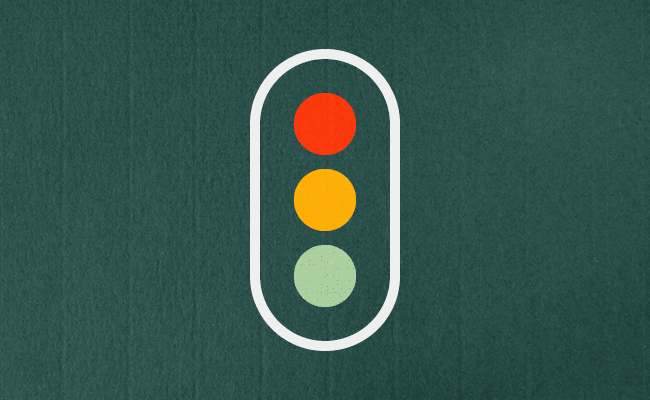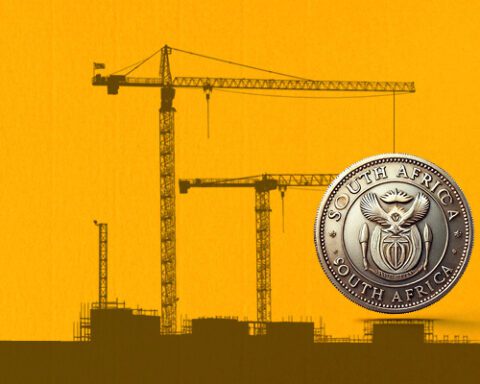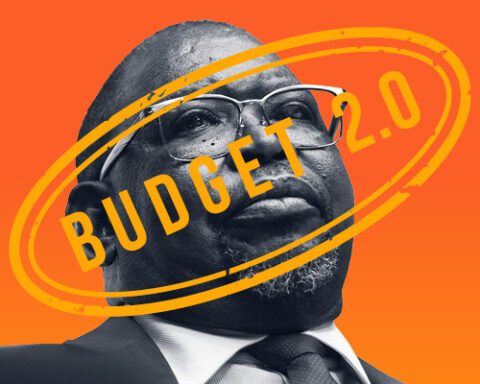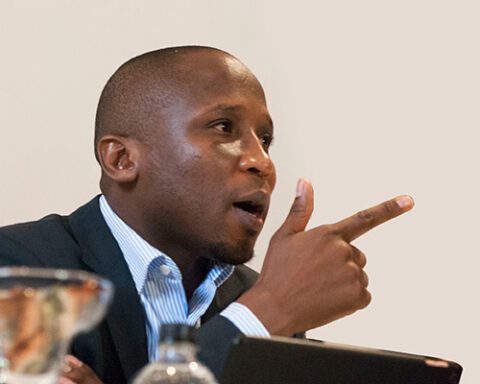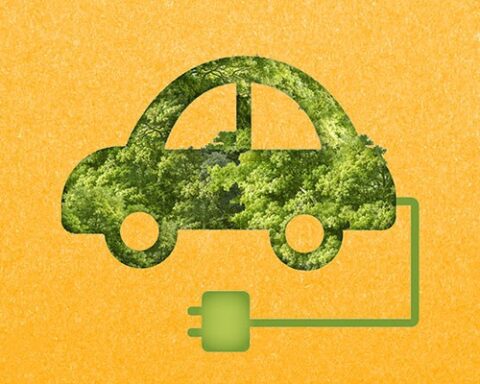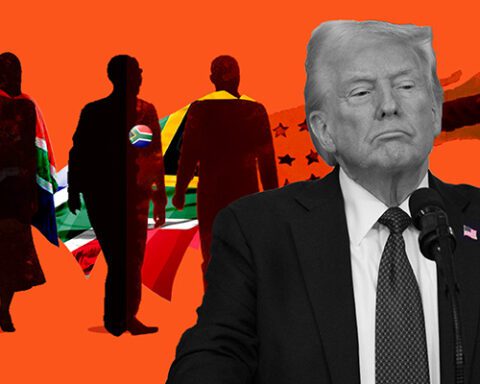On Wednesday, Gauteng transport MEC Kedibone Diale-Tlabela switched on some traffic lights.
Lest you scoff, these aren’t just any lights: they’re along Winnie Mandela Drive – so on a main arterial through the city of Joburg. They’re also special: they’ve freed themselves from the yoke of the authorities, trading in ineptitude for the power of the private sector. Most importantly, they’re part of a new provincial initiative: Adopt and Protect a Robot.
There’s a lot in that name – and not just the guilt it evokes at the thought of some mournful C3PO cast adrift in the cruel, cruel world. Adopt a Robot. Love him, and cuddle him, and call him George.
It’s certainly a more cutesy tag-line than Fix Our, um, Foul-ups. Because that’s what this is; the latest attempt by the authorities to get businesses and communities to step into the void they’ve left behind due to ineptitude and the squandering of funds.
That’s right, participating members of the private sector will now be hooking up dead traffic lights to their own power sources and ensuring the infrastructure isn’t vandalised or stolen for scrap. Long live monopoly capital.
It’s no small thing. The provincial roads and transport department last month conducted an audit of 400 traffic lights in the province, finding that 149 intersections are dysfunctional. And the province is reportedly responsible for some of the busiest roads – think Winnie Mandela Drive, Beyers Naude, Rivonia Road and the like.
Now, one look at the poster advertising the “ground-breaking” initiative – with premier Panyaza Lesufi looming large over all, of course – and you’d be forgiven for thinking that adopting a robot is a novel idea; a feat of outsize innovation and imagination; a sign of the authorities’ ability to Do Things.
But actually, in August 2022 the national roads department mooted a similar “Adopt a Road” programme as a way for individuals, organisations and businesses to help maintain sections of roads as volunteers or hire service providers to do so. (Incidentally, it also suggested the private sector – there it is again – make donations towards maintenance as part of companies’ CSI spend.)
Mind you, unlike the traffic-light initiative, this was largely tinkering around the edges: litter collection, grass-cutting, graffiti removal, drain cleaning. Service providers would have to be contracted for sealing roads and pothole repairs.
Early this year, a residents’ association in Roodepoort did something similar. Fed up with traffic congestion, it got the majestically inept Joburg Roads Agency to pass traffic lights on to alternative grids run by local businesses, The Citizen reports.
If anything, the only innovation in the new plan is that the government now seems to be outsourcing the protection of its infrastructure too.
So here we are; an embarrassingly clumsy effort at farming out something as basic as traffic light maintenance. An exemplar of in-the-box thinking.
Paying up
It’s not as if the user doesn’t pay for these services. The national government provides equitable share funding to the provinces, as well as conditional grants such as the Provincial Road Maintenance Grant (R1.1bn in 2023/24). So, first, the taxpayer is stumping up.
Then there’s the money the provincial roads and transport department collects through, among others, car licensing (its major source of income), and the sale of goods and services (abnormal loads, for example, or personalised plates). That came to R5bn in 2023/24.
The overall budget for the 2024/25 was set at R9.4bn – it was cut recently by R297m – with R2.7bn set aside for roads infrastructure. And, presumably, traffic light maintenance.
Now, the department doesn’t spend all its time sitting on its hands. It previously disbursed R30m for traffic signal repair. For the rest, well, they’re only plans in the making: dispatching 100 foot patrollers; training graduates in the Youth Service programme as part of an in-house maintenance team; getting academic researchers to look into the situation; and going all hi-tech, with drones to watch the theft from afar.
None of which spells change any time soon.
This isn’t so much about the technicalities of the traffic network itself; the Adopt and Protect a Robot initiative speaks to the erosion of the state’s capacity – and its abdication of responsibility when it comes to its primary functions.
Writ small, it’s the fallout from innumerable rounds of Eskom-induced load-shedding; the failure of the local power authorities to keep the lights on; a lack of budget management on the part of the powers that be; the inefficiency of city divisions tasked with infrastructure maintenance; and the inability of law enforcement to keep a check on rampant criminality.
With that failure, the ANC-led government has finally admitted what it’s been so loath to accept: its own ineptitude means it can’t fulfil some of the most basic functions of state without the help of the private sector.
That, right there, is a flashing red light.
Sign up to Currency’s weekly newsletters to receive your own bulletin of weekday news and weekend treats. Register here.
